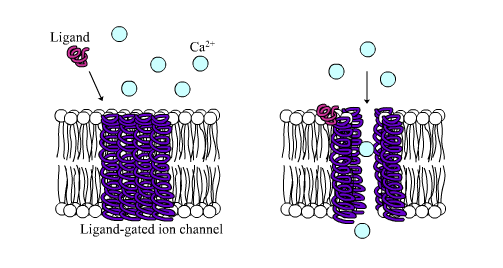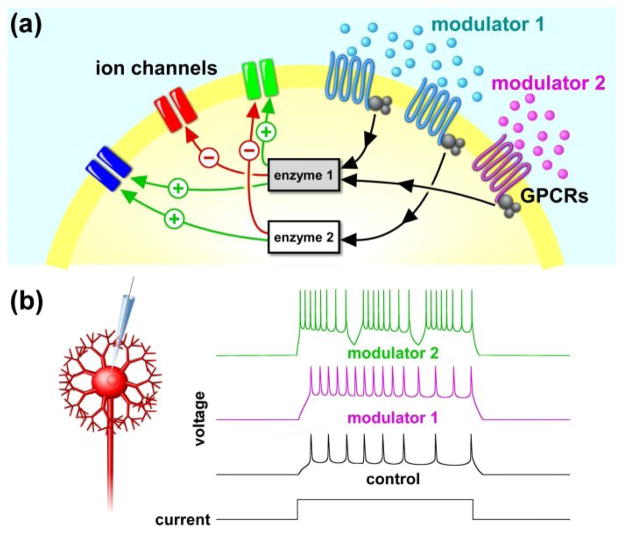How do the functions of the neurotransmitters norepinephrine, serotonin, dopamine, and acetylcholine relate to depression? How do they cause or contribute to the illness?
1 Answer
They have a second function...
Explanation:
The (bio-)chemicals mentioned are Neurotransmitters.
But they have a second function: they also act as Neuromodulators. There is a marked difference in both mode of operation and result:
Neurotransmitters act exclusively within the synapse between two neurons, effecting a fast impulse transfer. This results in either an IPSP (Inhibitory Post Synaptic Potential) or an EPSP (excitatory Post Synaptic Potential) in the receiving neuron.
Neuromodulators act in a different way: they seep into the nervous tissue, affecting whole regions of it.
Neurotransmitters usually bind to ionotropic receptors. More commonly referred to as Ligand-gated ion-channels. By binding, they open the channel to let ions flow through:

As mentioned, they operate strictly within the synaptic cleft, between two neurons: the Pre-synaptic and the Post-synaptic ones.
Neuromodulators act on different receptors on the neurons, and in a different way: they act on Metabotropic receptors.
Also known as secondary messengers, rather than transferring a signal like the Neurotransmitters mentioned above, they influence the mode of operation of the (post-synaptic) neuron.
To keep it simple: let's say they alter (modulate) the sensitivity of the accepting neuron: they can (indirectly) open or close ion-channels, and initiate other (intracellular) effects:

To put it in simple terms: Consider a play being performed in a theatre. The perception of the performance of the players on the stage can (will) be influenced by the lighting on the stage: Turning the lights to full power will represent a fine, sunny day, while switching them off resuls in the mood of a dark night.
Neuromodulators have the same effect: In contrast to neurotransmitters, in their role as modulators they act on multiple cells at the same time (whole regions), and the mode of operation is much slower.
But don't forget, the modulators mentioned can act as neurotransmitters as well.
To come back to the question: an imbalance in Neuromodulation WILL affect the mood a person is experiencing: a shortage will often lead to depression....

